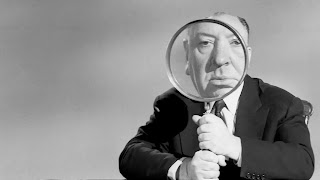Alfred Hitchcock
Alfred Hitchcock
London, 1899 - Hollywood, 1980) British nationalized American film director. The son of a butcher, he studied at the College of San Ignacio and, later, at the University of London, where he studied engineering. In 1920 he began working in the film industry, first as a publicist for Paramount and soon as a screenwriter and assistant director. In 1925 he moved to Germany, where he had the opportunity to work as an assistant director at the UFA studios and come into contact with German expressionism, a genre to which he always considered himself indebted.
Alfred Hitchcock
After returning to the United Kingdom, in 1929 he filmed Blackmail, a film that became the first success of English sound cinema; Titles such as The Man Who Knew Too Much (1934) or 39 Steps (1935), with a well-woven police plot, attracted the attention of David O. Selznick, who hired him in 1940 to work in Hollywood.
His first film there, Rebecca (1940), an adaptation of a novel by Daphne du Maurier starring Laurence Olivier and Joan Fontaine, was a resounding success with both critics and audiences. From this moment on and for the next three decades, Hitchcock directed films in Hollywood at the rate of one a year, reserving a brief appearance (cameo) in all of them, always without dialogue. His plots often revolved around police or espionage plots, always with absolute mastery of suspense.
If, on the one hand, the type of plot explains the commercial success of his films, on the other, and according to Hitchcock's own famous "McGuffin theory", this suspense serves only as a lure to capture the viewer's attention. , while on another level the film refers to more ambitious content: sometimes psychological, as in Marnie the Thief (1964), where a traumatic kleptomaniac redeems herself through love; others, religious, as in I confess (1953), with a superb Montgomery Clift in the role of the priest; or even, on occasions, metaphysical, as in The Birds (1963), whose symbolism has given rise to multiple interpretations. Regarding the director's relationship with psychoanalysis, manifest and well achieved in some films (From the Dead, 1958), it has been considered excessively reductionist in others (this has been stated with respect to Remember, 1945, with Ingrid Bergman psychoanalyzing Gregory Peck), and in general critics have overinterpreted his films in this sense.
Alfred Hitchcock's virtuosity is also evident in the handling of the camera, of great inventiveness and audacity, and in the editing, extremely fragmented and studied at times, such as in the well-known murder scene in the shower from Psycho (1960), perhaps his most famous film, whose filming took almost an entire week and in which a multitude of sequences are packed together in a very short time.
A certain black Hollywood legend claims that in his relationship with actors he was harsh and despotic, and his fixation on blonde women of more or less asexual appearance, the model for most of his female protagonists, was also highly criticized, and to whom sometimes pursued during filming, as happened with Kim Novak.
Starting in 1948 he became his own producer, and from the beginning of the 1950s he was able to count on high budgets and the best actors and actresses in Hollywood, already achieving international fame. He later wanted to intensify the plots and provide them with greater doses of suspense, although there were certain exceptions, such as Torn Curtain (1966) and Topaz (1969), with anti-communist themes, which were not as successful. All of Hitchcock's films bear the particular stamp of his style, whose influence has reached many other directors, including some members of the nouvelle vague, such as François Truffaut and Jean-Luc Godard.
How to cite this article:
Fernández, Tomás and Tamaro, Elena. «Biography of Alfred Hitchcock». In Biographies and Lives. The online biographical encyclopedia [Internet]. Barcelona, Spain, 2004. Available at https://www.biografiasyvidas.com/biografia/h/hitchcock.htm [access date: November 12, 2023].
With affection,
Ruben








.jpg)





_Arturo_Zambo_Cavero_&_%C3%93scar_Avil%C3%A9s_Peru.jpg)





.jpg)
.jpg)





.jpg)






.jpg)
